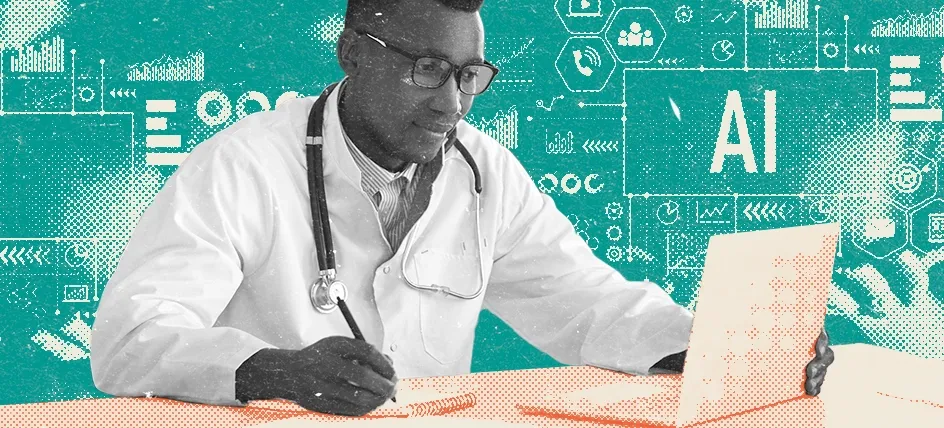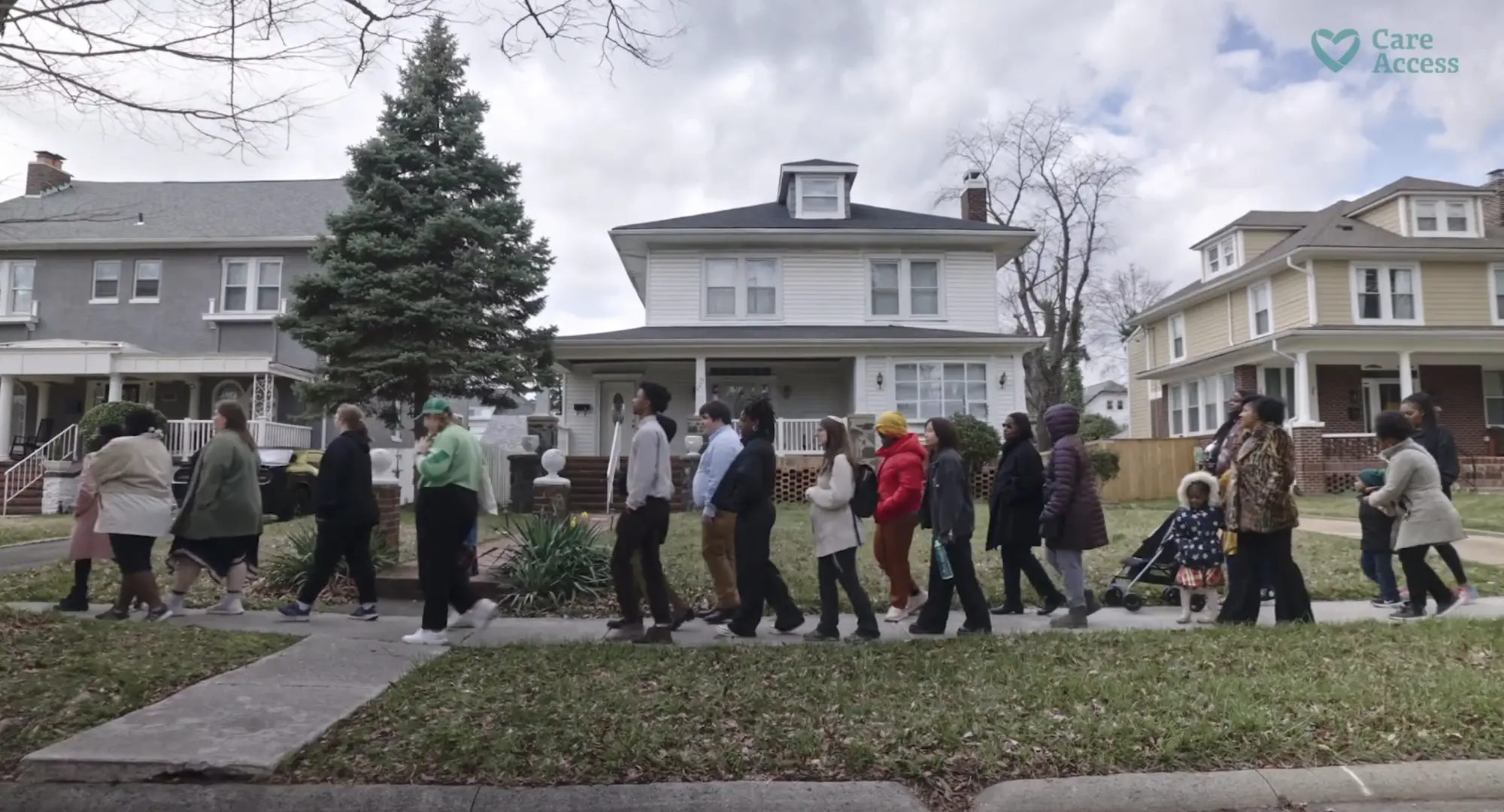Back to Health Resources
How AI is Changing the Future of Healthcare

Artificial Intelligence (AI) has quickly become part of our everyday lives. In healthcare and medical research, AI is already helping us diagnose illness sooner and may even be able to personalize treatments and predict disease risk. AI has the potential to change medical research and care in every way, and with more research, it will help people stay healthier longer.
AI and Diagnostics
When it comes to medical imaging, AI is already helping doctors diagnose and treat their patients. In a study of more than 260,000 women, radiologists used AI support to review mammograms of the participants. This increased breast cancer detection by 17.6%.1 In addition to being more accurate, using AI tools allowed the radiology teams to work faster. That means patients are getting better care, faster treatments, and their care teams are discovering potentially life-threatening illness sooner.

AI and Genomics
Every person has genetic material that makes us who we are. Genomics is the study of this genetic material, and AI is giving researchers and clinicians a better look at genetic data and how it might help treat patients in the future. This analysis is significantly faster with the use of AI models, and the results have far-reaching impacts.
For example, in one study, researchers used AI tools to sift through large amounts of data from patients with pancreatic cancer. By examining more than 6,000 different biomarkers (molecules and tissues that can be signs of a disease), the AI model was able to correctly predict the survival rates of the patients studied.2

Another study used AI to look for differences in the genes of people diagnosed with psychiatric disorders. The hope is that with more research, more data, and more analyses, we might be able to predict a person’s risk for such disorders.
These two studies, just a couple examples of many, show that in the very near future, AI can be helpful in a clinical setting itself – not just in research. As AI gets better, we hope it will save doctors time and even help predict what treatments might be the most effective.
AI and the Patient Experience
AI is also changing how patients can communicate with their care teams and get answers to their medical questions. Virtual AI tools are being tested to see how they can improve the patient experience, acting as a touchpoint between a person and their doctor in a way that’s more meaningful and insightful than simply searching the internet. These AI tools are able to provide insight that’s based on a person’s specific health history, analyzing patient databases to provide answers that make sense for them.
More research and tweaking of these tools are needed, but the future is looking promising with one study finding that 90% of patients using AI assistants felt they received useful information regarding their health problems.3

AI and Documentation
For years, doctors have spent hours completing notes and documentation after patient visits. With the use of AI-powered transcription, doctors can now take notes and provide accurate summaries of patient visits much faster with some studies showing these services reduce documentation time by up to 90%. AI tools have even diagnosed patients (based on the doctor’s notes) in a way that aligns with the physician’s ultimate diagnosis in more than 84% of cases.

With help on the more time-consuming tasks like documentation and reviews, doctors can spend more valuable time with their patients. Tools like these are also helpful for individuals in remote or underserved areas, making it easier for care teams to touch base with their patients from afar. They use AI-assisted chat tools and reminders to interact with patients, providing more frequent care without the added workload.
From genetic testing to better patient communication, AI is pushing medicine into a new future. Medical professionals, researchers, and health systems must continue to work with AI as it evolves to provide the best care possible. With continued research, people will be able to be diagnosed sooner, receive better treatment, and survive longer.
CONTRIBUTING EXPERT

Chandar Abboy, MD
Dr. Abboy is a physician board-certified in internal medicine, pulmonary disease, critical care medicine, and sleep medicine. He is a Principal Investigator at Care Access, overseeing multiple clinical trials.
SOURCES
DISCLAIMER
The information provided on Care Access is intended for informational purposes only and should not be considered as a substitute for professional medical advice, diagnosis, or treatment. Always seek the advice of your physician or other qualified healthcare provider with any questions you may have regarding a medical condition. Our products and content are not intended to diagnose, treat, cure, or prevent any disease.
Explore More Health Resources

STORIES from the Heart

